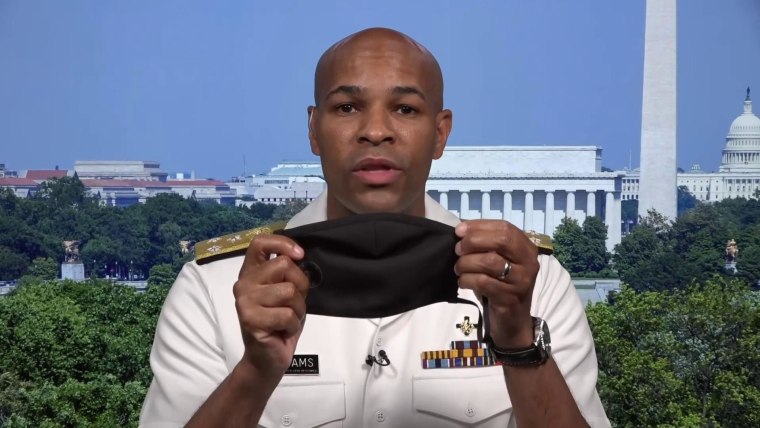Fearing a repeat of the spike in coronavirus cases that followed Memorial Day, public health experts are begging caution this July Fourth — worried that if Americans attend large gatherings without masks, the already record-breaking number of cases in this country could continue to grow.
On Thursday, the U.S. confirmed more than 55,000 new cases of the coronavirus, a new high for single-day cases, and more than double the daily total that the country was seeing just a month ago.
In the past two weeks, all but 10 states have experienced an increase in newly reported cases, according to the COVID Tracking Project, with clear signs that the uptick is not just due to more testing: 36 states have had an increase in the percentage of tests coming back positive for the virus, the Associated Press reported. In hotspots like Houston, the number of patients hospitalized with COVID-19 has nearly quadrupled since Memorial Day.
With Houston hospitals at the brink of capacity, Roberta Schwartz, the chief innovation officer at Houston Methodist Hospital, urged the public to follow health precautions, including wearing masks, practicing social distancing and following hand hygiene rules.
“It wasn’t that those warnings weren’t out there, it’s just that people weren’t following them as closely as they should have,” she said. “We keep giving the message: Your patriotic duty this July Fourth is to stay home and celebrate with your nuclear family and not go out and try to have a party, because this is not the time for that.”
But parties have already been happening across the country, with consequences: In Seattle, dozens of University of Washington students tested positive for the coronavirus this week after they reportedly attended fraternity parties with no masks. In Tuscaloosa, Alabama, a rash of new infections among young people was reported after revelers allegedly threw so-called “COVID parties” in which they purposely tried to catch the infection one other, drawing scorn from local officials.
While COVID-19, the disease caused by the coronavirus, tends to be deadlier and more severe in those who are older or who have underlying conditions, young and healthy people are not immune, and have been a growing portion of the latest coronavirus cases across the U.S. They can experience complications in some instances, and can also spread it to others who are more vulnerable.
“I think people have a false sense of security in that the majority of the new case numbers are in younger people in their 20s and 30s, and many of them are recovering, which is obviously a great thing,” said Tener Goodwin Veenema, a professor and visiting scholar at the Johns Hopkins Center for Health Security. “But it is these young people who will be bringing it home to their parents and grandparents and older friends. “
Some states have taken action to prevent a swell of the coronavirus over the holiday weekend, including Texas and Florida, which have closed some popular beaches. Along the Jersey Shore in New Jersey, large crowds are expected as beaches reopen at reduced capacity levels.
Paul Kanitra, mayor of Point Pleasant Beach, New Jersey, told the Associated Press he was concerned the restrictions were not enough.
“We’re seeing spikes across the country in states that opened up weeks ago, and while we’re doing a good job in New Jersey, there are a lot of people that are way too cavalier about social distancing,” he said.
Meanwhile, President Donald Trump planned to kick off the holiday weekend with a first-in-a-decade fireworks show over Mount Rushmore, for which 7,500 people were awarded lottery tickets to attend. The event will offer masks to attendees, but will not require them.
On Friday in an interview with The “TODAY” Show, Jerome Adams, the U.S. surgeon general, stopped short of telling Americans not to congregate in large gatherings, but urged them to wear face coverings.
“As we talk about Fourth of July and independence, it’s important to understand that if we all wear these, we will actually have more independence and more freedom, because more places will be able to stay open and we will have less spread of the disease,” he said.
Public health experts say it is up to individuals to take responsibility to avoid the same surge in cases that resulted from Memorial Day gatherings.
“We do have the power to stop it. It’s the simple things: Stay home whenever possible,” Goodwin Veenema said. “Celebrate a quiet Fourth of July in your own home or own backyard. It’s just one holiday out of the entire year as we all work together to try to stem the spread of this horrific disease.”
David Gura contributed.














